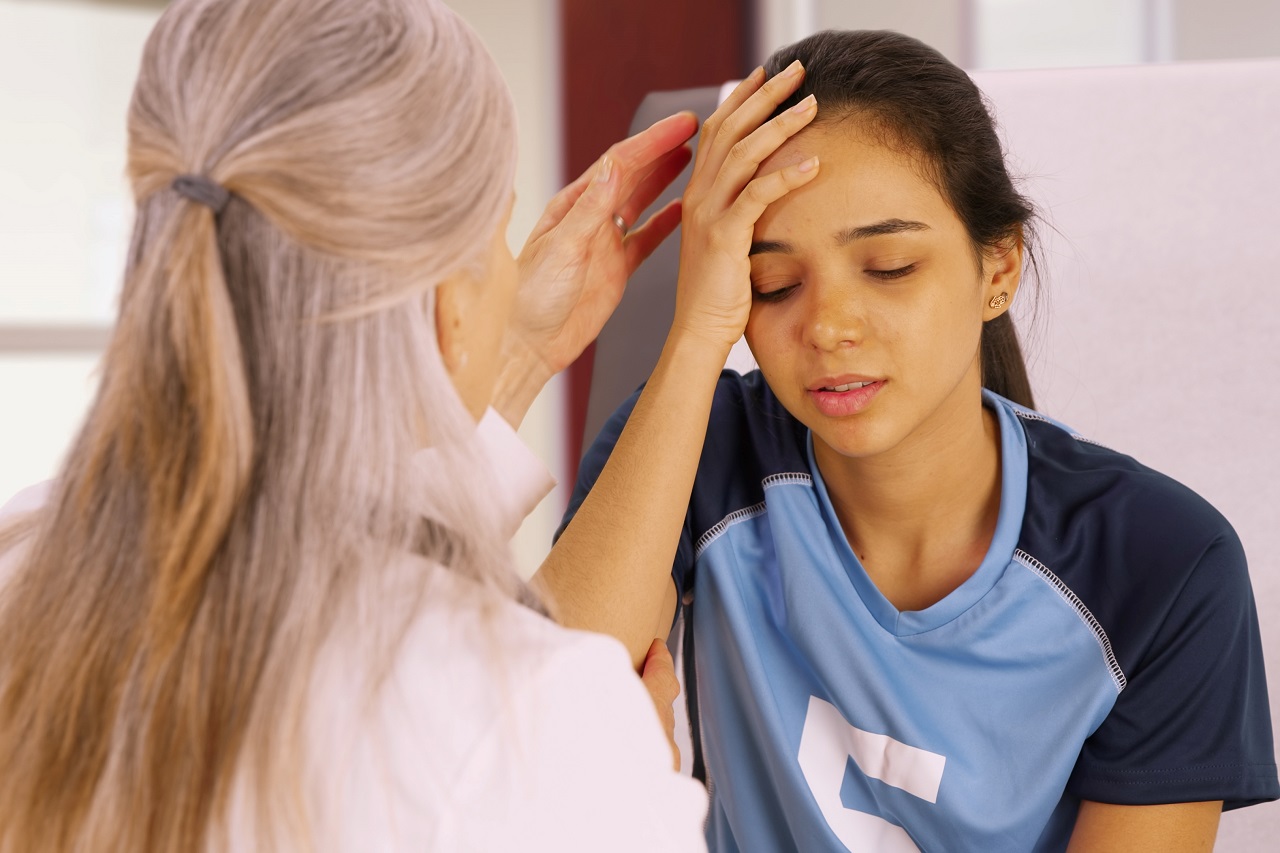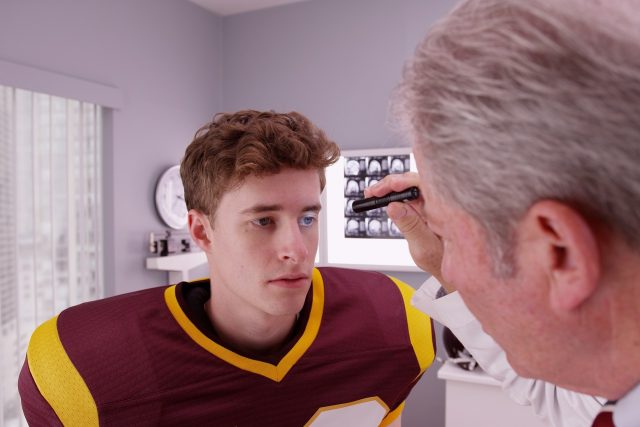Concussion Recovery
Damage to the brain can occur from a concussion, Traumatic Brain Injury (TBI), or Acquired Brain Injury, which can be caused by a blow to the head, stroke, or neurological dysfunction. These injuries have the effect of altering the functioning of the brain.

Common Vision Problems after Concussion
After experiencing a concussion, individuals may encounter various vision issues such as blurred or hazy vision, challenges with focusing and reading, eye discomfort, double vision, difficulties with eye tracking or coordination, unstable or jumpy vision, difficulties with object recognition, and other related problems. To address these issues, vision therapy (also known as orthoptics) utilizes a range of vision exercises and tools aimed at enhancing control over eye movements, focusing abilities, coordination, and teamwork between the eyes.

Vision Therapy After Concussion
Following a concussion, it is essential to undergo prompt and suitable evaluation and treatment. According to a study titled "Targeted Evaluation and Active Management (TEAM) in Neurosurgery" published in December 2016, Vision Therapy has been found to be advantageous for individuals with concussions and mild Traumatic Brain Injuries (TBIs) who experience common oculomotor problems like difficulty with reading, impaired vergence, accommodation, saccade, or pursuit. Vision therapy involves the utilization of diverse vision exercises and tools with the purpose of enhancing oculomotor control, focusing abilities, coordination, and teamwork between the eyes.
The Most Common Symptoms of a Concussion
- Dizziness
- Problems with balance
- Nausea and/or vomiting
- Balance problems
- Sensitivity to noise
- Sensitivity to light
- Blurred vision
- Headache
- Low energy level
- Unequal pupils
- Seeing flashing lights
- Difficulty remembering
- Confusion
- Inability to concentrate
- Inability to think clearly
- Mental fogginess
- Inability to remember new information
- Trouble paying attention
- Loss of focus
- Sleeping more than usual
- Unable to fall asleep
- Sleeping less than usual
- Easily angered or upset
- Feeling nervous or anxious
- Feelings of sadness
- Crying more than usual
- Lack of interest in usual activities
- Depression

Concussion Information & Resources
Concussion Information Sheet for Parents - click here
Our patients have had great success with reducing or eliminating these visual problems with various treatments, such as:
